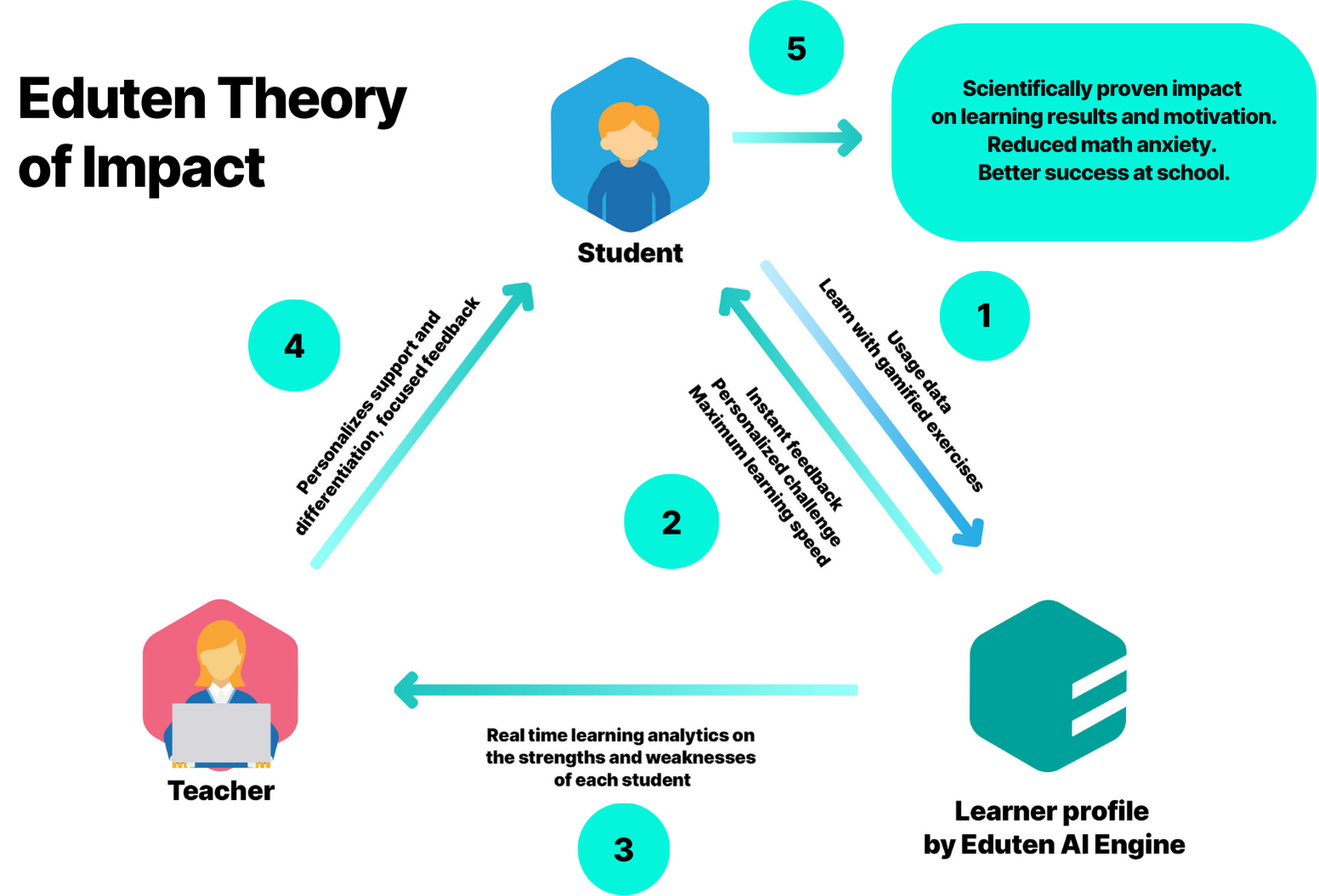Eduten’s pedagogical design principles
The Eduten platform is designed to be used for one lesson per week in the school and homework. The pedagogical design
behind this is to use digital learning for the parts where it can provide the most benefits but still be easy to
implement, and give room to traditional learning. One lesson per week is enough to get enough data on learning to
provide insights for the teacher and still be easily implemented into the weekly routine of the schools. The one lesson
a week should replace one regular mathematics lesson. Every week a new Eduten lesson should be opened on the platform.
In addition to working at school, students worked on the platform as homework. The goal for the homework is to achieve
at least the bronze trophy from the week’s lesson, and the reason is to gain the benefits of spaced learning.
A core feature of Eduten is that the teacher can easily offer each student a challenge to suit their learning level.
Advanced students should get more challenging exercises, and less advanced ones should get easier ones. This enhances
motivation for everyone. The result is better learning outcomes for all students regardless of their learning level.
Receiving too challenging or too easy tasks will demotivate or disengage students. Eduten makes it easy for the teacher
to group their students according to their learning level. There are three groups: warm-up group (preliminary
assignments), main group (assignments) and challenge group (bonus assignments). The warm-up group receives slightly
easier exercises, and the challenge group receives more challenging exercises. The teacher is encouraged to move
students between groups based on suggestions made by Eduten AI to ensure each student is suitably challenged. The
students don’t see which group the teacher has assigned them to.
Another key element of Eduten’s pedagogy is active learning. The exercises students complete are interactive. Students
will learn immediately after answering if the answer was correct or incorrect. This helps to form correct problem
solving strategies and encourages students to continue their learning. When a student writes an answer in a notebook,
nothing happens. On a digital platform like Eduten, students get instant feedback on the success of solving that
problem.
Trophies serve as a critical measure for teachers when assessing student effort and engagement with the exercises in the
Eduten platform. The color of the trophy corresponds to the percentage of points a student has earned from a lesson.
Specifically, bronze represents 50%, silver denotes 70%, gold signifies 90%, and diamond indicates a perfect score of
100%, which means that the student completed every task of the lesson successfully. The trophies alone do not describe
how much was learned or the quality of learning but indicate the work done in a lesson. The better the trophy the more
exercises were completed correctly. For example, Student A gets all the answers right on the first try and earns a
diamond trophy. This shows that Student A didn't struggle much, but still strengthened their skills. On the other hand,
Student B also gets a diamond trophy, but only after doing each exercise twice. They fail the first time but succeed the
second time. This means Student B learned the right way to answer the questions through practice. The way Student A and
Student B learned is different, but both ways were helpful. Regardless, the trophy can be used to verify that the
student knows the topic at hand, either after completing the lesson or already before that.
From students’ perspective, the trophies work as an important element in gamifying the learning process. For example, as
stated in the study by da Rocha Seixas et al., “students with low engagement can be stimulated to do these activities
through gamification techniques”, as long as the teachers are also actively participating in the process. Achieving the
bronze trophy typically takes 20-40 minutes of work from the student. Completing the diamond has much more variations
and may take anything from 60 minutes to over two hours.

